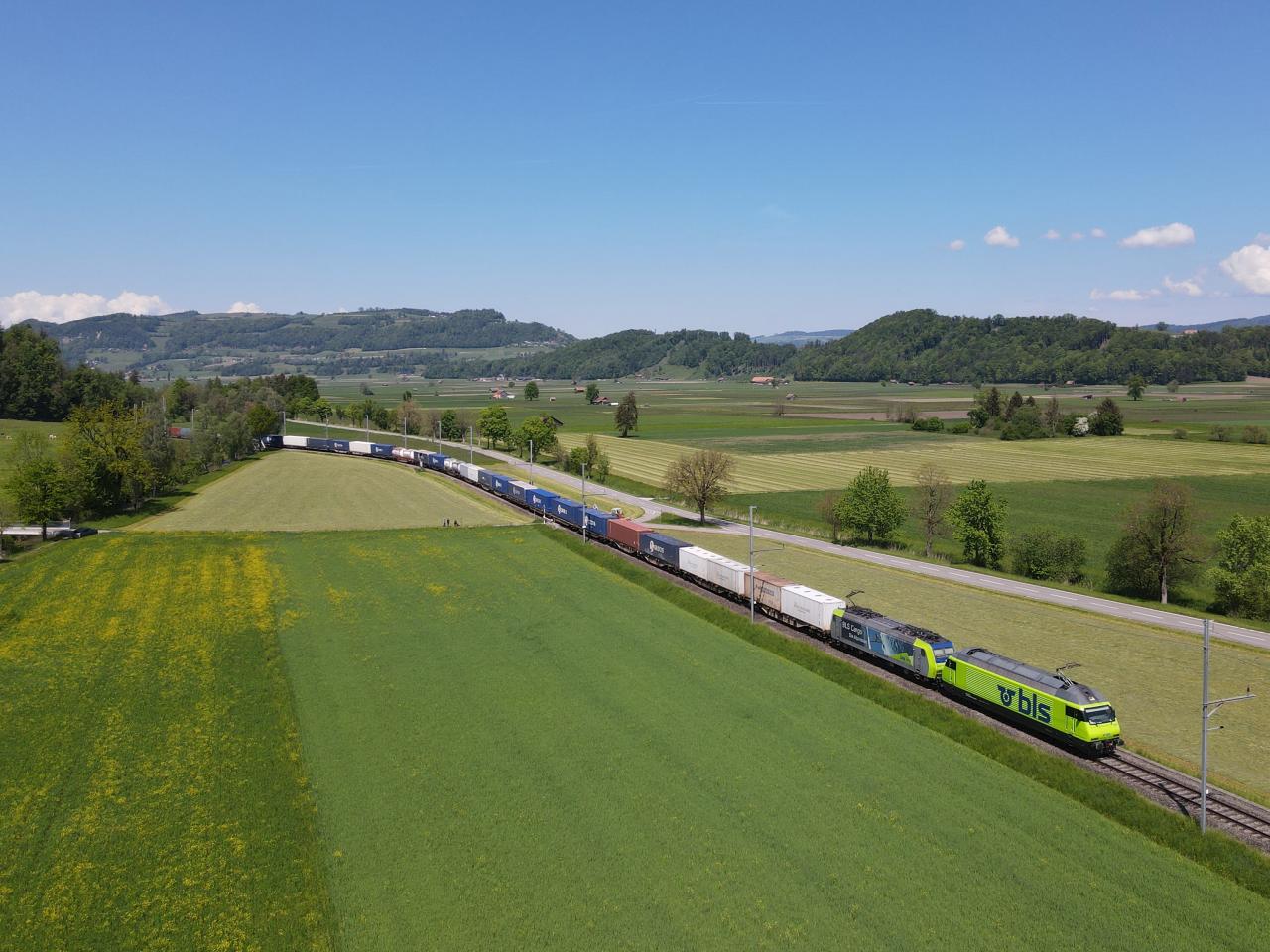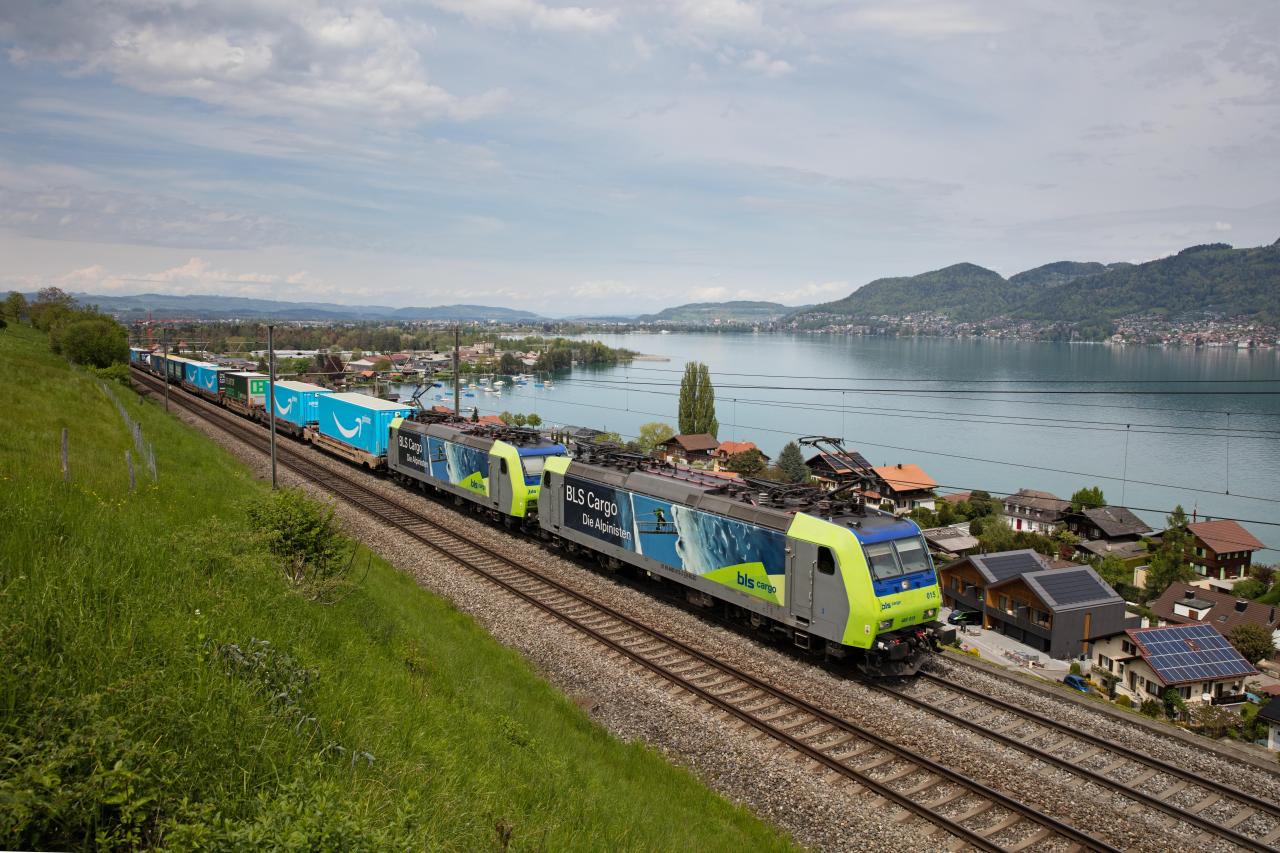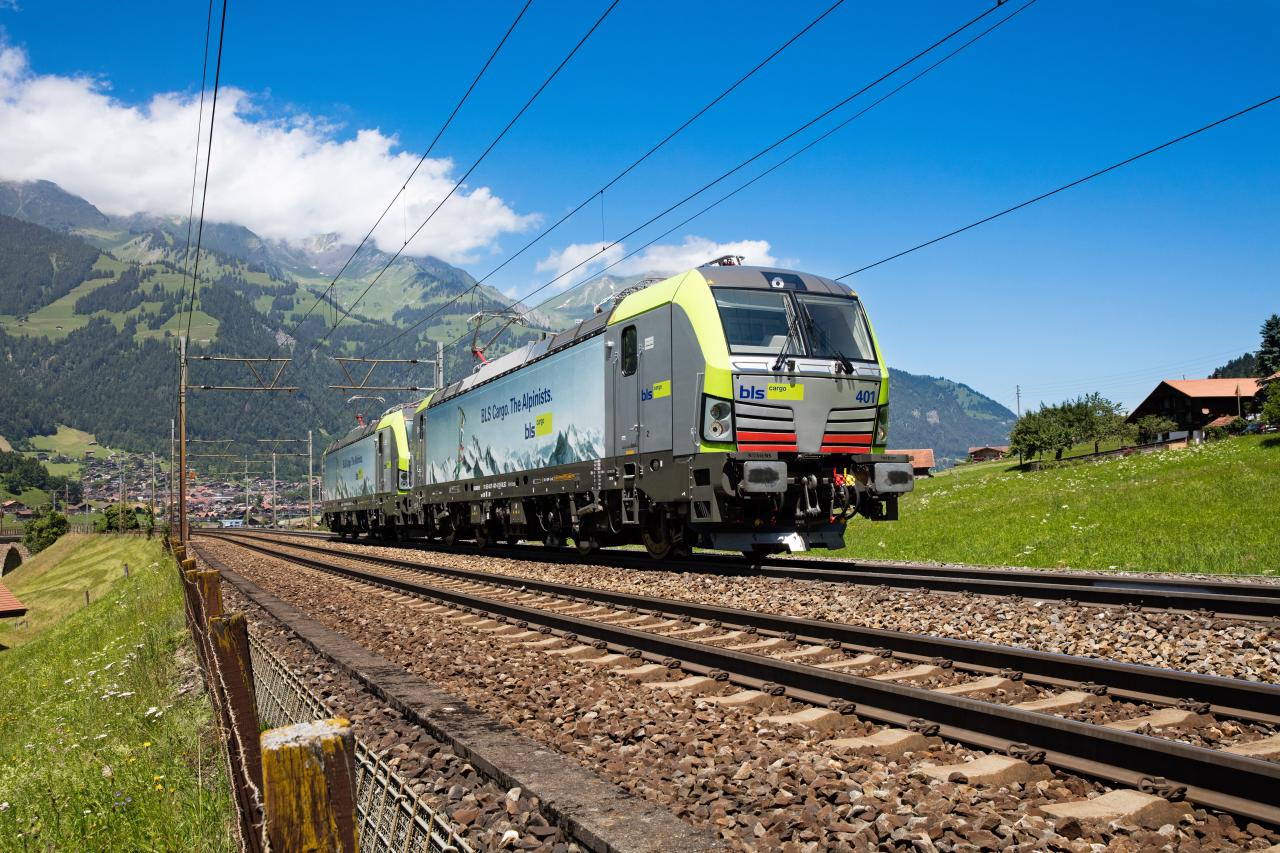Rail freight transport with its back to the wall
The 2025 Modal Shift Report shows that transalpine rail freight transport has experienced both absolute declines in traffic volume and lost market share to road freight in the last two years. This means that rail freight transports are being shifted back to the road. The signs are not good for 2026 either: With the premature discontinuation of the Rolling Road between Freiburg and Novara (RAlpin), further transports will be shifted back to the road. BLS Cargo, as an important player on the north-south corridor, is experiencing this development in parallel.
BLS Cargo is feeling the effects of the decline
Between 2023 and 2025 (1st half of the year), BLS Cargo's transport volume in number of trains fell by 12% - the decline was particularly pronounced in the current year. The main cause is on the one hand the capacity restrictions occurring during construction sites and maintenance work, which are already leading to train cancellations in the schedule. On the other hand, there are additional operational train cancellations caused by inadequate planning and congestion, especially on the German infrastructure. The situation is serious: 15-20% of BLS Cargo's trains are currently cancelled, meaning that a reliable product can no longer be offered to customers. In addition to the unstable operation, there are cost increases for the freight railways because locomotives and train drivers can no longer be used efficiently. Despite the poor availability of infrastructure, track access charges continue to rise incessantly in all countries, cancellation fees are levied, demands on the expensive train control system (ERTMS) are increasing and administrative regulations are being increased.
Germany as a focal point
German infrastructure policy, especially the control and construction site and maintenance management of the German network operator DB InfraGO, will play a decisive role in the coming years: only when line interruptions are significantly reduced, diversions are made available, renovations are shifted to low-traffic periods and track access prices are kept constant – only then will freight railways such as BLS Cargo be able to stabilise their operations and again contribute to the modal shift. Because it is becoming apparent that the next 2-3 years will also be characterised by extremely intensive construction site activity, BLS Cargo is in intensive contact with the management of DB InfraGO together with the industry, takes part in round tables with the FOT and formulates concrete demands together with the industry to overcome the challenges. At the beginning of November, an open letter was sent by the freight industry, especially in combined transport, to the new head of Deutsche Bahn, Evelyn Palla, and the German Minister of Transport, Patrick Schnieder, which Dirk Stahl co-signed as President of ERFA. The message is urgent: It cannot go on like this!
Switzerland needs a modal shift policy 2.0
Even though a lot has been achieved in Swiss modal shift policy over the past 25 years, the transalpine transversals have been completed and, accompanied by operating allowances and HGVs, has achieved a considerable relocation effect, Swiss policymakers must not sit back and relax. Switzerland needs a clear commitment to the goals of the modal shift policy and solidarity with neighbouring countries in order to exert tangible pressure on the players in the German railway infrastructure. This is the only way to turn the tide. For the closures of the Rhine Valley Railway during busy periods, which are planned for the coming years, immediate measures must be worked out with the infrastructure managers and the transport ministries: assurance of minimum capacities, compensation fund, suspension of cancellation fees and track access charges in the event of unreliable operation.
This also includes transitional financial relief
In addition, financial support measures are also required in the short term for the years up to 2030 so that customers do not migrate to the roads in droves and cause capacity bottlenecks, traffic jams and pollution for the environment. In particular, track access prices must be reduced as much as possible in the coming years with the Rola funds that will be released (compensation of around 60 million until 2028) – but should not be increased at the very least. In addition, operating contributions to unaccompanied combined transport are to be kept stable until 2030 and then continued. CO2 compensation, from which rail freight transport already benefits, must also be further expanded. According to the latest forecasts, Switzerland will miss its 2030 climate targets by a wide margin – the transport sector is responsible for this.
Details on the modal shift report can be found here.



